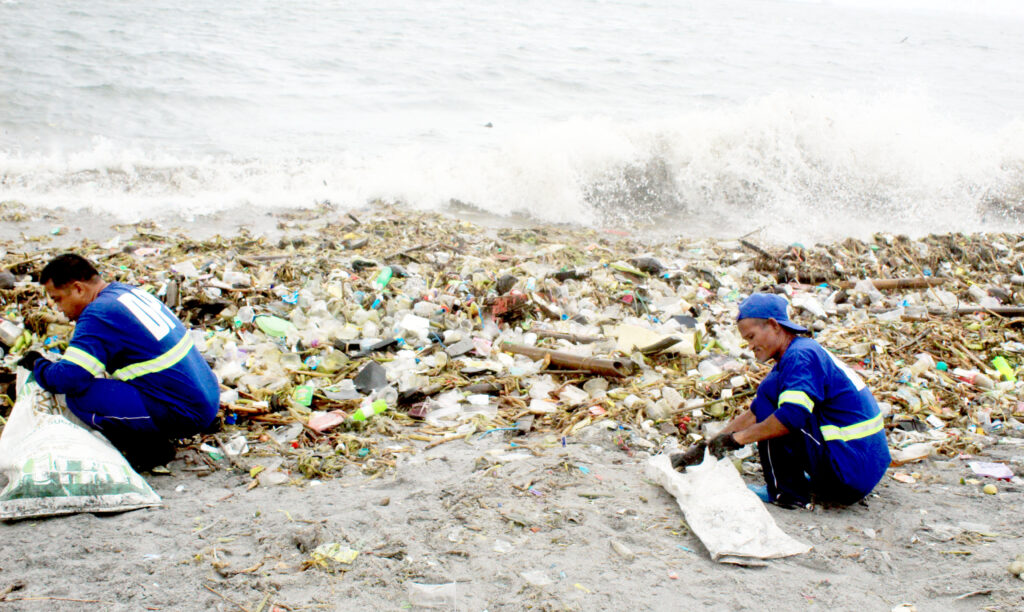Waste recovery and reduction are integral goals of Unilever Philippines’ sustainability strategy. To that end, the consumer goods manufacturer came up with the “Misis Walastik” initiative to bring down the volume of sachet waste by collecting and reusing such plastic packaging, while providing a decent source of extra income to some Filipinos.
Launched in 2012, “Misis Walastik” is the longest-running environmental sustainability program of Unilever. It is a community-based waste collection program for plastics, such as sachets, wrappers, and plastic bags, with a cash incentive to collectors. This program aims to ensure that the waste of their products does not go to scraps that can harm the environment.
In 2017, as a step towards strengthening its sachet recovery efforts, it relaunched the program, this time with partners such as local government units, barangays, non-government offices, and community-based organizations to collect disposed sachets.
Marketing director for Homecare at Unilever Philippines, Anna Mangilin, said that through the program, they have been able to collect approximately 185 million pieces of sachets in the past years that were turned into fuel for energy and cement pavers.
In 2019, Unilever said it had launched its ambitious goal of achieving a waste-free world.
“By 2025, we will reduce virgin plastic in our packaging by 50 process and help collect and process more plastic packaging than we sell,” it vowed.
Among the partners is Quezon City’s Linis Ganda, the widest junkshop network in the country.
Under the banner of Kolek, Kilo at Kita: Iwas Basura, Dagdag Kita (Collect, Weigh, and Earn: Avoid Waste, Increase Income), participating households segregate and collect flexible packaging waste. In return, they are given a cash for every kilo of collected plastic.
Each junkshop owner under the Linis Ganda has a designated area of collection, and their Eco Aides, or “magkakariton,” are responsible for collecting recycled materials, including newspapers and bottles. They also go to different households to gather items and disseminate information about the solid waste collection program.
According to Roberto Paligutan of Linis Ganda, an eco-aide can earn P700 to P1,000 per day.
In 2020, over 230 metric tons of plastic waste were generated under the scheme and cash incentives worth nearly P2 million were given.
Fast forward to 2023, the program has collected nearly 17,000 metric tons of post-consumer flexible plastic waste.
Linis Ganda is currently present in Quezon City, Antipolo, and Caloocan and will expand its collection system to more areas this year.
“We have long known at Unilever that we have a part to play in the issue of plastic waste. And achieving our waste-free targets need a collective, multi-sectoral effort,” Unilever Philippines Sustainability Lead, Rondell Torres, said during the recent renewal of partnership between the company and Linis Ganda.
“Which is why we are thankful to all Women of Walastik, from our long partnership with Linis Ganda, because you are at the front line teaching our communities to properly segregate waste before it can be disposed and recycled continuously.”
Torres also emphasized Unilever’s commitment to step up its waste diversion efforts for flexible and rigid plastic waste ahead of the enforcement of the Extended Producer Responsibility Law, while supporting the informal waste sector through its waste pickers and eco-aid networks, as well as junkshop partners.
Aligned with the 2030 agenda of Zero Waste to Nature, Unilever aspires to make all of its products 100 percent post-consumer recycled by 2025. Its commitments toward the goal include reducing the amount of virgin plastic used in manufacturing; supporting the collection and processing of its plastic waste; ensuring plastic packaging is designed to be reusable, recyclable, or compostable; and increasing the use of post-consumer recycled plastic material in their packaging.
